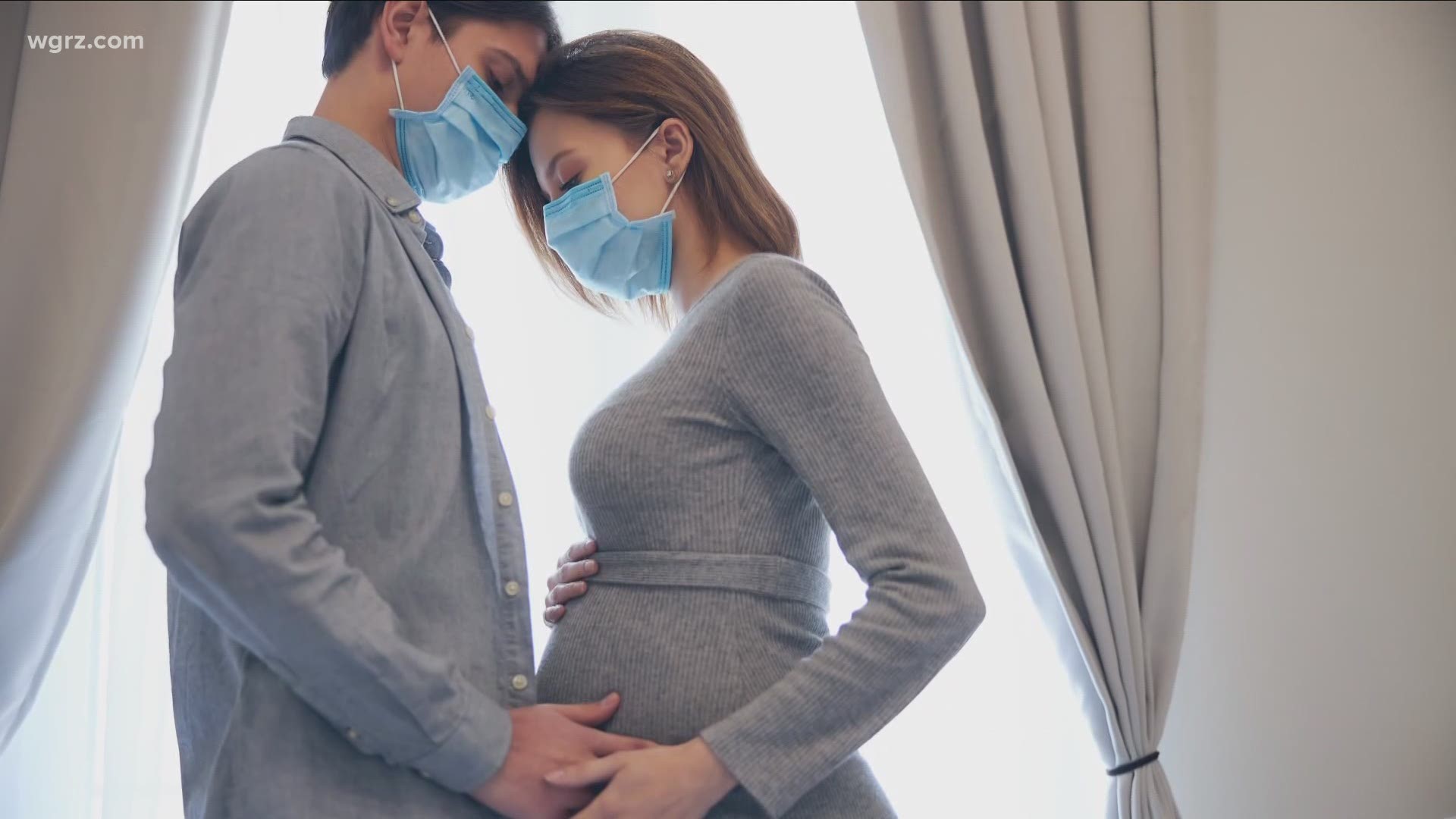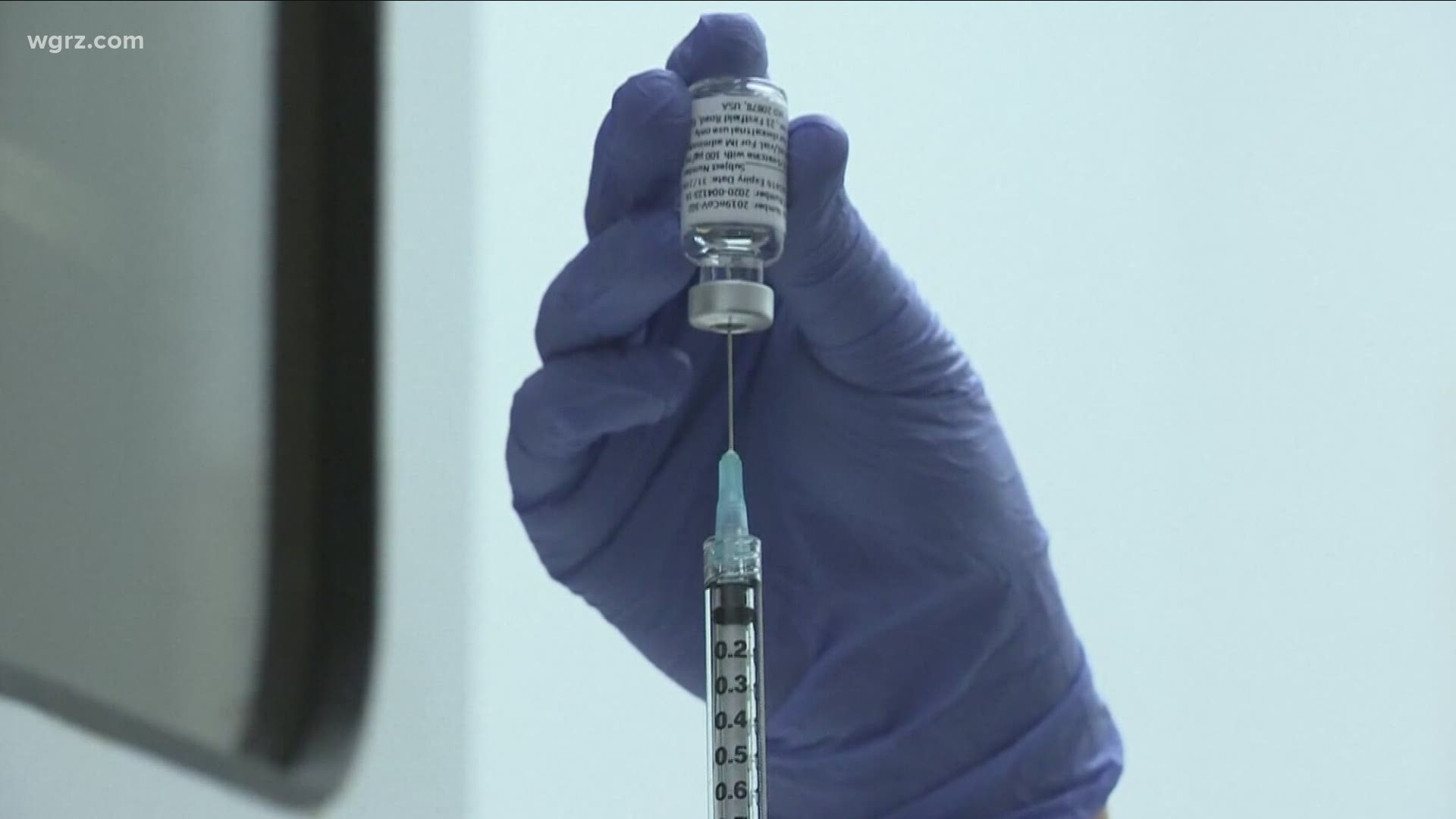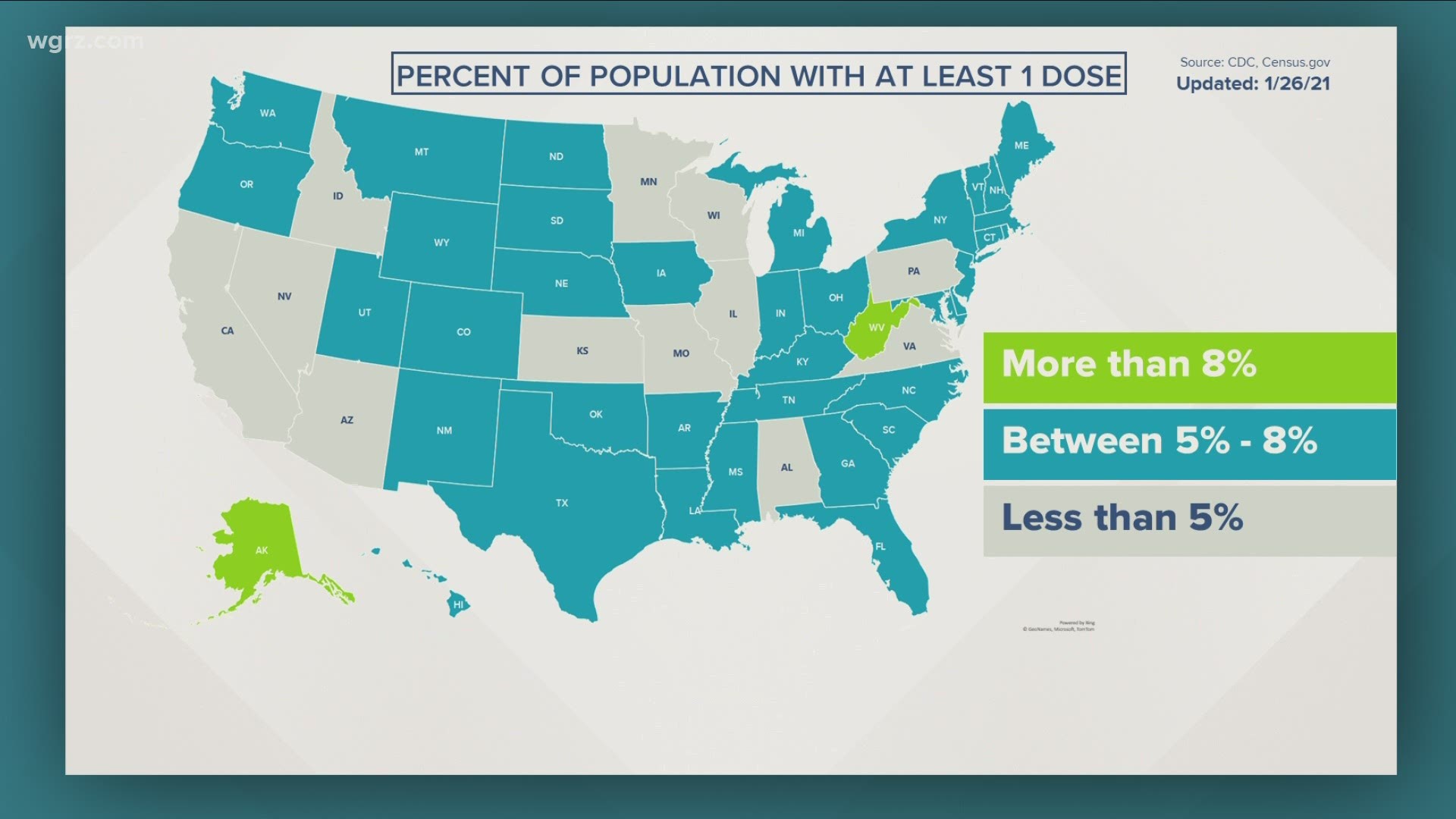KENMORE, N.Y. — The World Health Organization says that expectant mothers should not take Moderna's COVID-19 vaccine "unless they are at risk of high exposure."
The new recommendation, while not universally agreed upon, is reviving concerns among pregnant women who may be worried about vaccination.
In response, the American College of Obstetricians and Gynecologists or ACOG stressed in its own updated guidance Wednesday that both COVID-19 vaccines currently authorized by the U.S. Food and Drug Administration should not be withheld from pregnant women who choose to receive them.
According to Dr. Scott Zuccala of Hamburg Regional Gynecology Group that doesn't mean every mother should make the same vaccine decision. The Centers for Disease Control and Prevention puts pregnant women at an overall higher risk but each woman's situation is different.
"When you're looking at it and when you're counseling and talking to the pregnant mother what you want to do is get an idea of what type of risk is she at," Dr. Zuccala said.
For Carly Garretson, a healthy, young, and excited Western New York mother, her decision to not get vaccinated was made prior to finding out she was pregnant and was strengthened when she did find out.
"I just personally feel that it's too early," Garretson told 2 On Your Side during a Zoom interview Wednesday.
Garretson is currently about 10 weeks pregnant, nearing the end of her first trimester.
"I don't feel entirely comfortable taking something without knowing the long-term side effects, and especially now that I'm pregnant. The health of not just me but my baby comes first, so the unknown matters a lot to me," she said.
Unfortunately, for many mothers, looking for the answer to whether or not to get vaccinated, there remains little data. Early trials involving pregnant mothers are still playing out, just like the pandemic, or lacked the necessary number of participants to truly gauge a new treatment.
"So it's hard to know the risks and the benefits and the alternatives in a classic way that we look at medicines," Dr. Zuccala said.
The American College of Obstetricians and Gynecologists even recommends individuals considering a COVID-19 vaccine discuss these unknowns as well as the efficacy and safety of the vaccine.
"It's very hard to do a trial with pregnant women with any type of medicine so in any situation it can be very difficult, this is just more acute," Dr. Zuccala said.
He explained how pregnant medical professionals, supermarket employees, or teachers may gauge their risk differently the same way women who previously smoked or had other health problems would, when looking to become pregnant.
"I've definitely heard a variety of opinions, but definitely with young mothers who continue to have children, I've gotten the feeling that they don't want to take it," Garretson said.
The CDC also recommends moms-to-be consider, how prevalent the virus is where they live, vaccine efficacy or how effective it is, and individual risk and severity of the disease to the woman.
"That's why the key is to try and give an informed decision," Dr. Zuccala said.
Expecting mothers should be open and honest about their concerns and work with their doctor to dispel myths, and ensure a healthy start.



